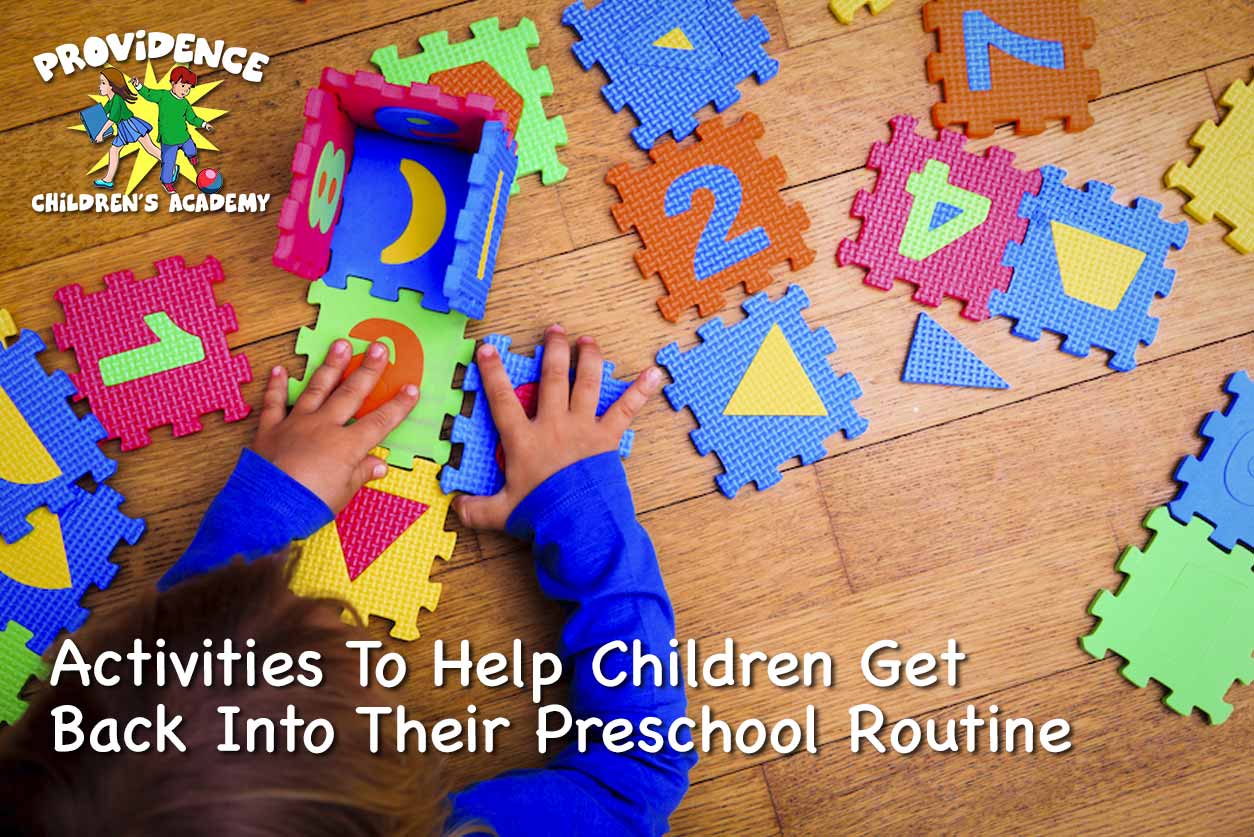
Returning to preschool after the summer break can be challenging for children, parents, and teachers. Even children who enjoy going to school can find the first day after the break overwhelming. Waking up earlier to commute to school, spending more time away from their parents, and learning new concepts in a short space of time are factors that can make readjustment difficult for young children.
Luckily, there are activities that can help to make your preschooler’s first days back to school less dramatic. Here we look at four activities that parents can start at home to prepare their children for back to school.
1. Crafting
Crafting is beneficial for young children because it teaches them to follow directions, enhance their focuses and concentrations, and helps fine-tune their motor skills.
Getting kids crafting is a fun way to familiarize them with some of the activities and tools they will be using at school. It’s a creative way to ease your child back into what is expected of them. An engaging preschool curriculum includes art activities like painting, design, cutting, and pasting. Using these concepts at home helps children remember the skills they were taught in the previous semester and can make children feel more confident when they engage with them back at school.
2. Word Puzzles
Completing word puzzles before the school day starts is a good way to help prepare children for school. Word searches and crosswords don’t just keep children occupied for a few minutes, they encourage critical thinking skills and can improve grammar and memory.
At school, children are expected to reason logically and work independently. Word puzzles extend vocabulary because they increase exposure to old and new vocabulary. Figuring out the puzzles teaches children to use their vocabulary to solve problems while having fun.
3. Schedule Play-dates
Play-dates help children develop important social and emotional skills. When children return to school after a break, they can find it difficult to engage with a larger group of their peers, especially if they did not spend regular time with children during their summer. Scheduling relatively short play-dates that are between 90 minutes and two hours long.
4. Role-playing
Role-playing can be an important part of a child’s education. Using the imagination as a vessel for learning has proven extremely effective. Acting-out scenarios and using props to express themselves is a great way for young children to learn.
Role-playing your child’s school routine can help ease them into their first day back. Parents can practice everything from getting out of bed to class activities. Roleplay is a good way for parents to understand what children experience in a class setting as children are likely to act-out events experienced and observed in real life.
Children learn best through play. Finding interactive, educational activities that keep children engaged are the best way to prepare them for upcoming changes. Routines are important to children as it creates predictability and certainty that allow them to thrive. It’s important to prepare children for any changes to their routine. Going back to school and moving away from their holiday routine can make learning at school on the first day back difficult. Going through these activities before school starts can improve adaptability and give parents an opportunity to bond with their children in a meaningful way.
At Providence Children’s Academy, your child’s development is a priority. Contact us today to find out more about our interactive curriculum.
